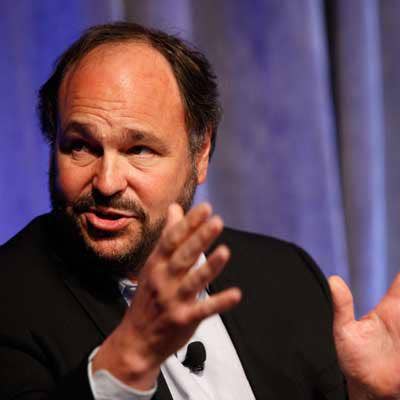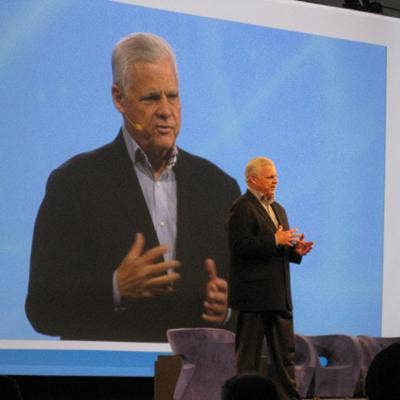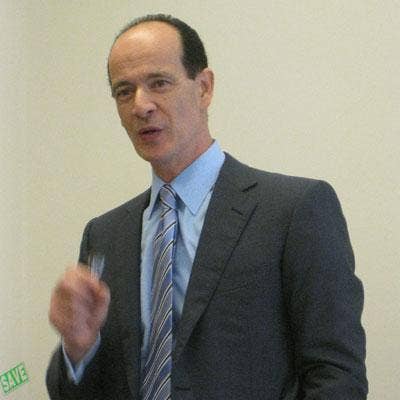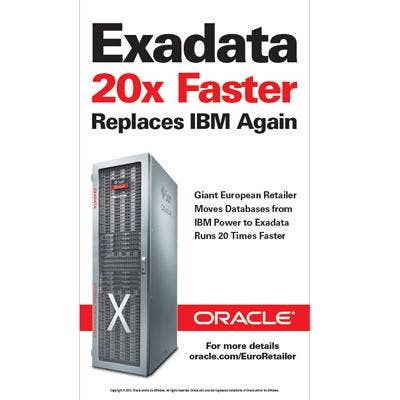Top 10 Tech Industry Questions Simmering In August

Q&A
For those who love blockbuster technology news, July was your month. Paul Maritz was replaced as VMware CEO by Pat Gelsinger. Lenovo and EMC entered a partnership that could have major implications in China. And, Apple finally made its first appearance at Black Hat, which didn't exactly go well. CRN examines 10 simmering questions and how they will affect the technology industry in August and beyond.

What Does Channel Chief's Layoff Mean For Windstream Partners?
Windstream's VP of dealer sales, Dan Sterling (left), lost his job in a string of middle management layoffs a few weeks ago. His position in the channel, however, has not been eradicated. Jeff Howe, the company's central region president, is taking on Sterling's responsibilities in addition to his own.
According to John Leach, Windstream's vice president of business sales, Sterling is the only channel executive who was laid off. Leach says that Howe should now be considered the company's new channel chief, and it appears as though Windstream plans to continue with business as usual.

Is CEO Swap EMC's Way Of Reigning In VMware?
After four years as VMware's CEO, Paul Maritz (left) will be replaced by Pat Gelsinger, EMC's president and COO of information infrastructure products division, in September.
While Maritz will remain as EMC's chief strategist, the announcement came as a surprise to VMware partners and analysts and raised some questions about the motivation behind the move.
VMware is bracing for a fight in the data center front as it tries to convince businesses of the value of its integrated cloud stack. As VMware enters new markets, partners told CRN that they'll need a CEO who can help hardware partners see the value of virtual appliances. While Maritz was the leader that VMware needed to quickly evolve its technology, this engineer-at-heart may be better built for a strategic role.

What Are The Implications Of The Lenovo-EMC Partnership?
EMC, a leading storage hardware company, is partnering with Chinese PC maker Lenovo in a deal that aims to boost the adoption of Lenovo's enterprise servers and help EMC gain a share in the Chinese market. The partnership also splits ownership of EMC's lomega division, in which Lenovo will be contributing money to lomega's production of external hard drives and other IT products.
Through its partnership with Lenovo, EMC will increase its presence in China and other parts of the world, according to Joe Tucci (left), chairman and CEO of EMC.
Lenovo sees the partnership as a way to move its R&D efforts beyond server and PC products, into what it calls the "PC-plus era." The fact that Lenovo will now act as EMC's overseas reseller could also change the international game of competition between U.S. tech giants seeking a piece of the worldwide market, giving EMC an inside edge in China.

What Does VMware's Acquisition Of Nicira Mean For The Company?
VMware's $1.2 billion acquisition of Nicira, a startup that develops network virtualization technology, is being hailed as a potential game changer in the networking space.
Bogomil Balkansky, VMware's senior vice president of cloud infrastructure products, told CRN the acquisition will give VMware and its partners "the ability to extend virtual networking across any cloud platform."
The Nicira acquisition gives VMware access to clouds using OpenStack's platform, the leading alternative to VMware's vSphere. Balkansky confirmed that once the deal is done VMware will begin mapping out which technologies can be leveraged from both its existing platform and Nicira's, which could perhaps hint at future integration.

Where Is Symantec Headed Post-Salem?
Enrique Salem, Symantec's President and CEO for the past 3 years, was shown the door after lackluster quarterly financials and replaced by current Chairman Steve Bennett. The decision to part ways with Salem was supported by investors, and Symantec shares rose nearly 13 percent in the wake of the announcement.
Salem's departure could signal a shift in Symantec's strategy. Despite remaining the second largest storage software vendor, Symantec reported a 9.9 percent drop in profit at the end of its first fiscal quarter in June.
Bennett's probable first order of business will be finding sources of recurring revenue. In a research note to clients, Allan Krans, a senior analyst at Technology Business Research (TBR), said Symantec's new CEO will make it easier for the company to take advantage of the cloud and mobile markets by transitioning its information management and security business to those areas.

Is Apple's Momentum In Smartphones Slowing?
Apple's iPhone, the smartphone market's number one seller for the past few years, was recently dethroned by Samsung's Galaxy S III. According to Juniper Research, Samsung trumped Apple's iPhone sales in the second quarter by selling twice as many smartphones -- 52.1 million compared to Apple's 26 million.
Samsung's strong showing was largely due to its release of the Galaxy S III smartphone, which shipped almost 10 million units in its first month.
Apple's iPhone sales last quarter were less than analysts expected, but that may be due to customers waiting until the release of the iPhone 5, which is expected to arrive in September.

How Far Will Oracle Go To Compete With IBM's Hardware?
Since acquiring Sun Microsystems in early 2010, Oracle has shown increasing interest in rival IBM's hardware platforms. Oracle's hardware revenue dropped 16 percent in its April quarter, however. In an effort to reverse the decline in hardware sales, Oracle has been focusing on selling its larger systems -- namely its Exadata Database Machines.
Earlier this month IBM challenged Oracle's new Exadata advertisements in the Wall Street Journal, charging that Oracle's "20x faster" claim was misleading because it only referred to two functions and one IBM Power System. Oracle plans to appeal the National Advertising Division's (NAD) decision to "permanently discontinue" the ads.

Is Microsoft's Consumer Sales Strategy Going Political?
Microsoft hired Mark Penn (left), CEO of public relations firm Burson-Marsteller and a former advisor to both Bill Clinton and Hillary Clinton, to lead a small team of managers within the company focused on consumer-related initiatives.
Penn's appointment came just a few days before Microsoft's Worldwide Partner Conference, where CEO Steve Ballmer told CRN in no uncertain terms that the company is waging war on Apple and leaving "no stone unturned." Penn, whose title at Microsoft is corporate vice president of strategic and special projects, could help Microsoft as it prepares to launch its Surface tablet and works to integrate the technology from its $1.2 billion acquisition of Yammer. In any event, it looks like Microsoft is about to play hardball, or at least attempt to.

Is Oracle Following VMware's Lead In Network Virtualization?
Oracle is acquiring Xsigo, a developer of virtualization technology that allows companies to manage their multiple virtual connections as well as connect them to other servers and data storage systems.
Oracle plans to combine Xsigo's products with its own VM server, which would allow the technology to offer more virtualization for cloud computing. Last week, VMware acquired network virtualization startup Nicira for $1.2 billion.
While Oracle's acquisition of Xsigo seems like a response to VMware buying Nicira, it could open the door to partnerships between the two vendors. Jon Toor, Xsigo's vice president of marketing, told CRN Wednesday that Oracle could make use of the virtual switches created by VMware's Nicira in its own technology.

What Did Apple Gain By Speaking At Black Hat?
Apple's attendance at the Black Hat security conference last Thursday marked the first time the secretive vendor had ever made an official appearance at the show.
A crowd of about 500 conference attendees crammed into an auditorium to hear Dallas De Atley, manager of Apple's platform security team, discuss security technologies in iOS. De Atley basically read through the contents of an iOS security whitepaper Apple released in May, which itself contained little information that security researchers didn't already know. Then, he and the rest of a small Apple security entourage left without taking Q&A or chatting with the audience.
Apple deserves credit for showing up at Black Hat, but many attendees who witnessed the iOS security presentation came away feeling disappointed.